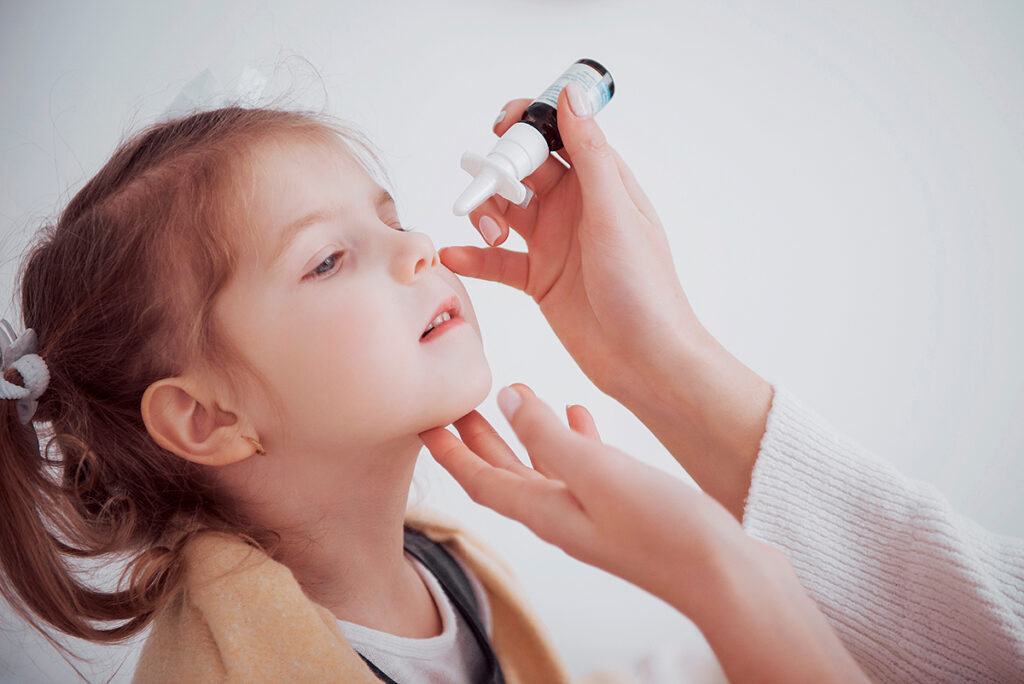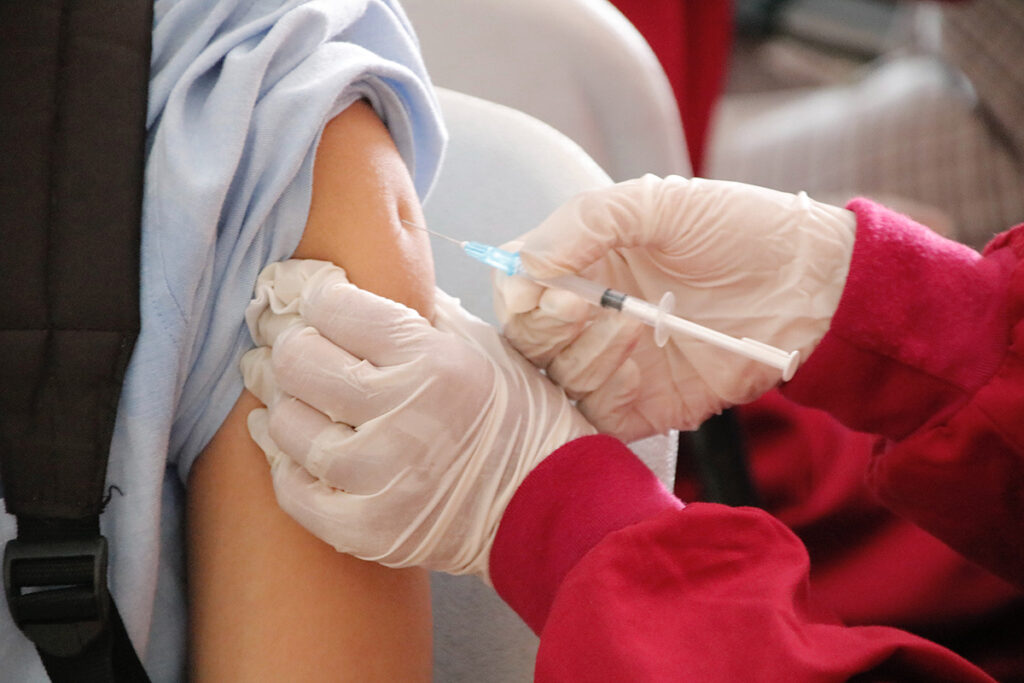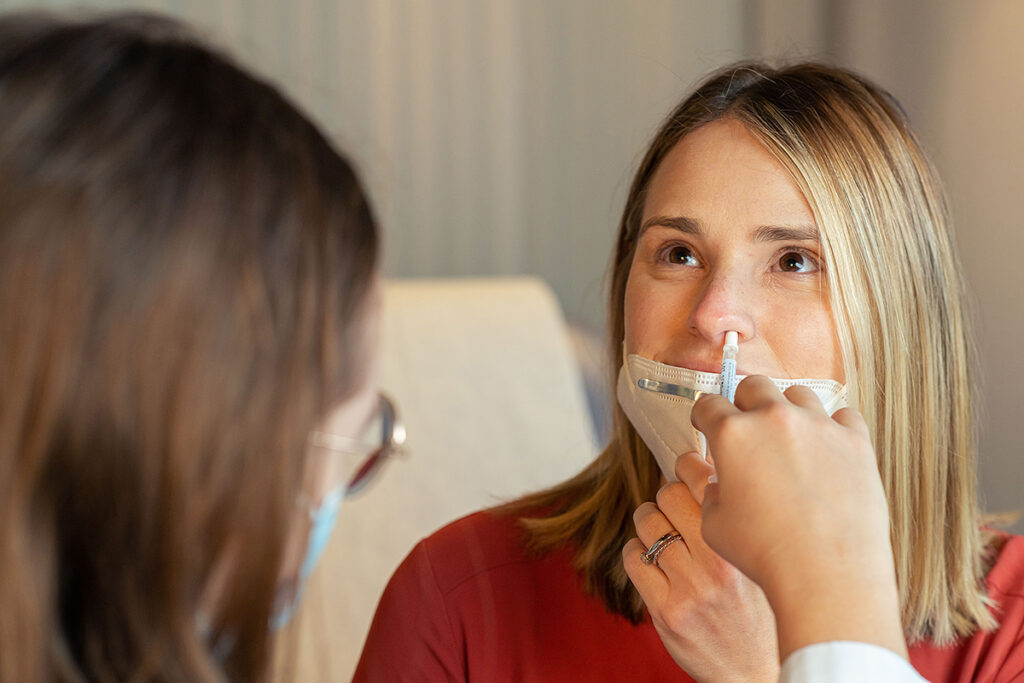10 months after scientists determined the genetic structure of the coronavirus, clinical trials showed a 95% effectiveness of vaccines against COVID-19. During the first year of the pandemic, the coronavirus evolved slowly and did not affect the efficacy of vaccines. Later, however, viral strains appeared with increased infectivity, which can bypass immune defenses. The culmination was the Omicron strain, where the effectiveness of vaccines decreased by 8-21 times.
How to prevent infection and achieve adequate protection against COVID-19 and its long-term consequences? Scientists suggest using nasal vaccines that stimulate mucosal immunity and complement the immune response to intramuscular vaccines.
American scientists compared the responses of antibodies, B-cells, and T-cells in those vaccinated against SARS-CoV-2 and those who underwent COVID-19. Compared with those who recovered from COVID-19, those vaccinated had significantly lower levels of neutralizing antibodies against several coronavirus strains, including Omicron. Additionally, unlike those who recovered from COVID-19, a protective B- and T-cell response did not develop in the respiratory tract of the vaccinated.
Scientists experimented on mice, where the vaccine caused only a weak response of neutralizing antibodies to Omicron, which could protect the respiratory mucosa. However, when the scientists intranasally immunized mice with an S-protein-encoding adenovirus in addition to the vaccine, the combination elicited neutralizing solid antibody responses against the coronavirus, including the Omicron strain. While current vaccines are effective against severe COVID-19, protection against Omicron also requires boosting respiratory mucosal immunity – which is where the nasal vaccine can help.
In the mucosa of those who have recovered from COVID-19, a strong antibody response is absent in most of those vaccinated, as reported by a group of scientists from Canada and Israel. The scientists measured levels of antibodies in the vaccinated, including IgA, which protects the mucous membranes. By the time the second dose of the vaccine was given, only 30% of people had an IgA antibody response. Two doses of the vaccine increased IgG levels but did not affect IgA. 6 months after the second dose of the vaccine, IgG antibody levels decreased, and IgA levels remained stable. Study participants who became ill with coronavirus had lower IgA levels 2-4 weeks after the second dose of the vaccine compared to non-ill participants. IgG levels were comparable between these groups. COVID-19 vaccines that elicit a sustained IgA antibody response may prevent infection.
American scientists also confirm that tissue immunity is most important for protection against coronavirus. Scientists have found a T- and B-cell response in the bone marrow, spleen, lungs, and lymph nodes within 6 months of being infected with the coronavirus. Lung and lung-associated lymph nodes contained the most SARS-CoV-2-specific memory T and B cells.
Another group of American scientists showed that the nasal vaccine supports mucosal immunity to protect against Omicron. The study was conducted on mice. Mice were vaccinated with two doses of the mRNA vaccine intramuscularly, followed by intranasal immunization with recombinant S-protein or a polymeric carrier of mRNA encoding the S-protein. Individually, both intramuscular and nasal immunization elicited only weak neutralizing antibody responses in the respiratory mucosa. However, antibody levels became very high with intramuscular vaccination, followed by nasal immunization with recombinant S-protein or polymeric carrier mRNA encoding the S-protein.
Moreover, the antibodies neutralized not only the original strain of COVID-19 but also Omicron. The S1- and RBD-specific IgA antibodies and T-cell response levels increased in the respiratory mucosa. The nasal vaccine can be given several months after the primary vaccination.
Conclusions
COVID-19 is evolving, and vaccines are becoming obsolete. Intramuscular vaccination alone is not enough to protect against infection with new coronavirus strains – it does not stimulate mucosal immunity at the tissue level. Nasal vaccines induce a mucosal immune response and may prevent disease with new coronavirus strains and protect against the long-term effects of SARS-CoV-2.
Useful article, necessary information? Share it!
Someone will also find it useful and necessary:
References
- Respiratory mucosal immunity against SARS-CoV-2 following mRNA vaccination | Science Immunology
- Systemic and mucosal IgA responses are variably induced in response to SARS-CoV-2 mRNA vaccination and are associated with protection against subsequent infection – PubMed (nih.gov)
- SARS-CoV-2 infection generates tissue-localized immunological memory in humans – PubMed (nih.gov)
- Unadjuvanted intranasal spike vaccine booster elicits robust protective mucosal immunity against sarbecoviruses | bioRxiv
- Operation Nasal Vaccine—Lightning speed to counter COVID-19 | Science Immunology



